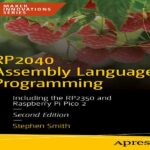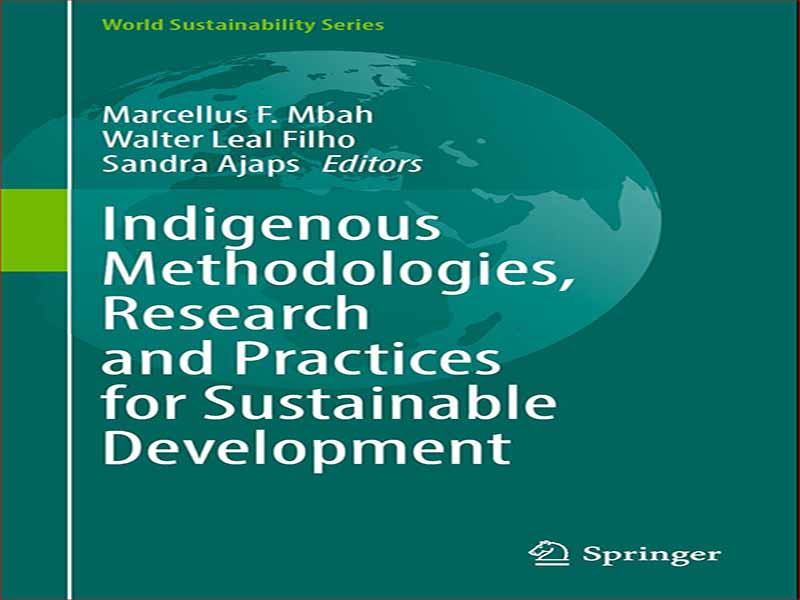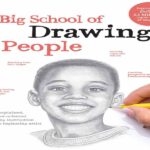- عنوان کتاب: Indigenous Methodologies, Research and Practices for Sustainable Development
- نویسنده: Marcellus F. Mbah
- حوزه: توسعه پایدار
- سال انتشار: 2022
- تعداد صفحه: 446
- زبان اصلی: انگلیسی
- نوع فایل: pdf
- حجم فایل: 10.5 مگابایت
در حالی که تحقیقات آکادمیک مدتهاست مبتنی بر ایده معرفتشناسیهای غربی یا علمی بوده است، این اغلب منحصربهفرد بودن زمینههای بومی را نشان نمیدهد، و به ویژه در ارتباط با دستیابی به اهداف توسعه پایدار سازمان ملل متحد (SDGs). اهداف توسعه پایدار در سال 2015 با 17 هدف و 169 هدف اعلام شد. این اهداف ابزاری هستند که از طریق آنها دستور کار 2030 برای توسعه پایدار طی 15 سال آینده پیگیری و محقق می شود و مشارکت مردم بومی برای دستیابی به آنها ضروری است. مردم بومی را می توان تقریباً در هر منطقه ای از جهان یافت که در سرزمین های اجدادی در شهرهای بزرگ، جنگل های بارانی، مناطق کوهستانی، دشت های بیابانی، قطب شمال و جزایر کوچک اقیانوس آرام زندگی می کنند. زبانها، دانشها و ارزشهای آنها ریشه در مناظر و منابع طبیعی در قلمروشان دارد. با این حال، اکنون بسیاری از مردم بومی در داخل سرزمین خود و در سطح جهانی اقلیت هستند و تحقیقات بر اساس معرفتشناسی و روششناسی بومی کم است. علاوه بر این، تحقیقات آکادمیک در مورد مردم بومی معمولاً مبتنی بر لنزهای غربی است، و روشهای رهاییبخش عمدتاً با چارچوب معرفتشناختی فرهنگ غربی، از جمله بورسیه رهاییبخش اروپامحور که برای استعمار زدایی از تحقیقات عمل میکند، تعریف شدهاند.
علیرغم ارزش موضوع دانش بومی در زمینه توسعه پایدار، انتشارات کمی وجود دارد که به طور خاص بر این موضوع تمرکز دارند. بر اساس نیاز به رفع این شکاف است که این کتاب تولید شده است. بنابراین، نیاز به بیان، و همچنین آوردن به پیوند تحقیقات با هدف تقویت توسعه پایدار، یک دیدگاه استعمار زدایی در طراحی و عمل تحقیق را بیان می کند. این نه تنها پتانسیل غلبه بر هر نوع خشونت معرفتی تداوم یافته علیه جوامع بومی و سیستم های دانش آنها را دارد، بلکه می تواند منجر به دستیابی به اهداف توسعه پایدار، با تمرکز بر حمایت از گروه های بومی برای پیشبرد برنامه توسعه خود، بر اساس آنها شود. جهان بینی و اولویت ها
ارسالهای مختلف در مورد روشها، تحقیقات و شیوههای بومی با تمرکز بر توسعه پایدار، در خدمت پیشبرد دانش به شیوهای بیسابقه است. این کتاب در دو بخش تنظیم شده است:
ملاحظات روش شناختی و نظری
مطالعات موردی و ابتکاراتی که تعامل بین دانش بومی و زمینههای مختلف را که زیربنای توسعه پایدار هستند را نشان میدهد.
این بخشهای وسیع کتاب به موضوعاتی از قبیل:
استعمارزدایی از روشهای تحقیق برای توسعه پایدار در محیطهای بومی
ساختارشکنی پژوهش مبتنی بر جامعه برای توسعه پایدار: نقش دارندگان دانش بومی
ادغام دانش بومی به عنوان بخشی از یک بسته ابزار تحقیق سلامت برای پایان دادن به گرسنگی و بهبود تغذیه
همکاری های قبیله ای و نمایندگی بومی در آموزش عالی: چالش ها، موفقیت ها و پیشنهادات برای دستیابی به اهداف توسعه پایدار
رویه بومی پسااستعماری اقیانوس آرام جنوبی برای توسعه پایدار جامعه انعطاف پذیر
آموزش بهداشت عمومی در آفریقا: مورد عدالت معرفتی (در) و سیستم های بهداشت بومی
دیدگاه های مردم بومی در مورد تغییرات آب و هوایی و تجربیات، مقابله و راهبردهای سازگاری آنها در جنوب آسیا.
ما از نویسندگان برای به اشتراک گذاشتن دانش و تجربه خود از طریق فصل های خود و همکارانی که با کمک در بررسی ها در آن مشارکت داشته اند، تشکر می کنیم. این کتاب راهنمای ارزشمندی برای کسانی است که در مورد هر موضوع مرتبط با SDGs در تنظیمات بومی تحقیق می کنند. همچنین به ادبیات توسعه پایدار کمک می کند و ممکن است الهام بخش کارهای بیشتری در این زمینه باشد.
Whilst academic research has long been grounded on the idea of western or scientific epistemologies, this often does not capture the uniqueness of Indigenous contexts, and particularly as it relates to the achievement of the United Nations Sustainable Development Goals (SDGs). The SDGs were announced in 2015, accompanied by 17 goals and 169 targets. These goals are the means through which Agenda 2030 for sustainable development is to be pursued and realised over the next 15 years, and the contributions of Indigenous peoples are essential to achieving them. Indigenous peoples can be found in practically every region of the world, living on ancestral homelands in major cities, rainforests, mountain regions, desert plains, the arctic, and small Pacific Islands. Their languages, knowledges, and values are rooted in the landscapes and natural resources within their territories. However, many Indigenous peoples are now minorities within their homelands, and globally, and there is a dearth of research based on Indigenous epistemologies and methodologies. Furthermore, academic research on Indigenous peoples is typically based on western lenses, and emancipatory methodologies have primarily been defined by the epistemological framework of the western culture, including Eurocentric emancipatory scholarship acting to decolonise research.
Despite the value of the subject matter of Indigenous knowledge in a sustainable development context, there is a paucity of publications specifically focusing on this topic. It is on the basis of the need to address this gap that this book has been produced. It, therefore, asserts the need to articulate, as well as bring to the nexus of research aimed at fostering sustainable development, a decolonising perspective in research design and practice. This would not only have the potential to overcome any form of epistemic violence perpetuated towards Indigenous communities and their knowledge systems, but also can engender the achievement of the SDGs, with a focus on supporting Indigenous groups to drive their own development agenda, based on their worldviews and priorities.
The various submissions on Indigenous methodologies, research, and practices with a focus on sustainable development serve the purpose of advancing knowledge in an unprecedented way. The book is structured into two parts:
Methodological and theoretical considerations
Case studies and initiatives that illustrate the interplay between Indigenous knowledge and different contexts that underpin sustainable development.
These broad parts of the book tackle topics such as:
Decolonisation of research methodologies for sustainable development in Indige-nous settings
Deconstructing community-based research for sustainable development: The role of Indigenous knowledge holders
Integration of Indigenous knowledge as part of a one health research toolkit to end hunger and improve nutrition
Tribal collaborations and Indigenous representation in higher education: Chal-lenges, successes, and suggestions for attaining the SDGs
South Pacific post-colonial Indigenous praxis for resilient sustainable community development
Public health education in Africa: The case of epistemic (in) justice and Indigenous health systems
Indigenous peoples’ views on climate change and their experiences, coping, and adaptation strategies in South Asia.
We thank the authors for sharing their knowledge and their experience by means of their chapters, and those colleagues who have contributed to it by assisting with the reviews. This is a valuable handbook for those researching any subject related to the SDGs in Indigenous settings. It also provides a welcome contribution to the literature on sustainable development, and it may inspire further works in this field.
این کتاب را میتوانید از لینک زیر بصورت رایگان دانلود کنید:
Download: Indigenous Methodologies, Research and Practices for Sustainable Development



































نظرات کاربران